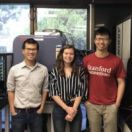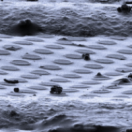SystemX Alliance News
Thu, 02/17/2022
Using artificial intelligence to analyze vast amounts of data in atomic-scale images, Stanford researchers answered long-standing questions about an emerging type of rechargeable battery posing competition to lithium-ion chemistry.
Tue, 02/15/2022
Five faculty members from Stanford University have been named 2022 Sloan Research Fellows.
Mon, 01/31/2022
Professor Subhasish Mitra has been selected to receive the 2022 IEEE Computer Society Harry H. Goode Memorial Award.
Tue, 01/25/2022
A professor of bioengineering and of electrical engineering discusses his path to Stanford, and how students can get started on their own journeys.
Fri, 01/21/2022
The chair of the School of Engineering’s Department of Chemical Engineering received the award for her innovations in bio-interfacing wearable health monitoring devices.
Thu, 01/13/2022
Hennessy, president emeritus at Stanford University, is recognized for his contributions to the invention, development and implementation of RISC chips.
Thu, 01/06/2022
Cryo-EM snapshots of the solid-electrolyte interphase, or SEI, reveal its natural swollen state and offer a new approach to lithium-metal battery design.
Mon, 01/03/2022
Islands of inactive lithium creep like worms to reconnect with their electrodes, restoring a battery’s capacity and lifespan.












